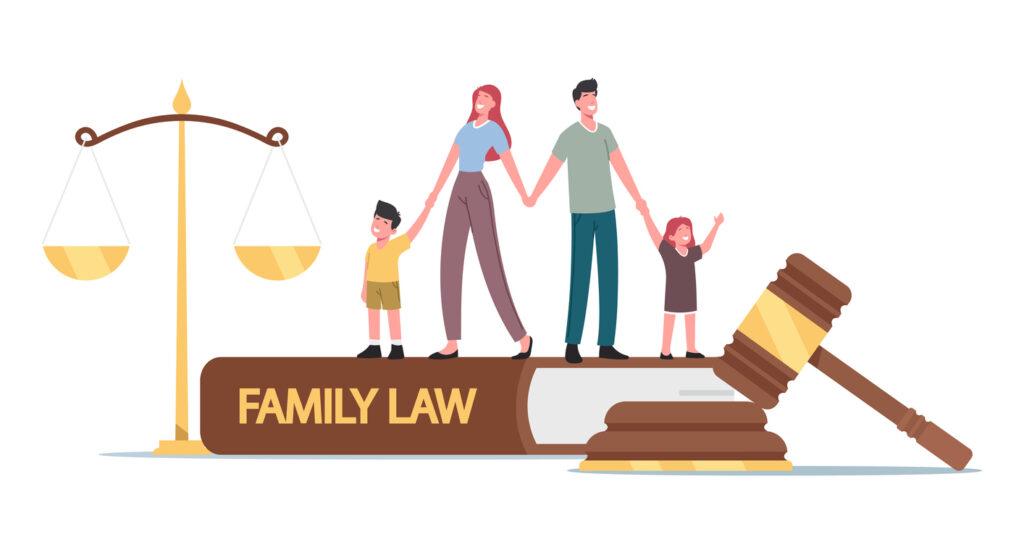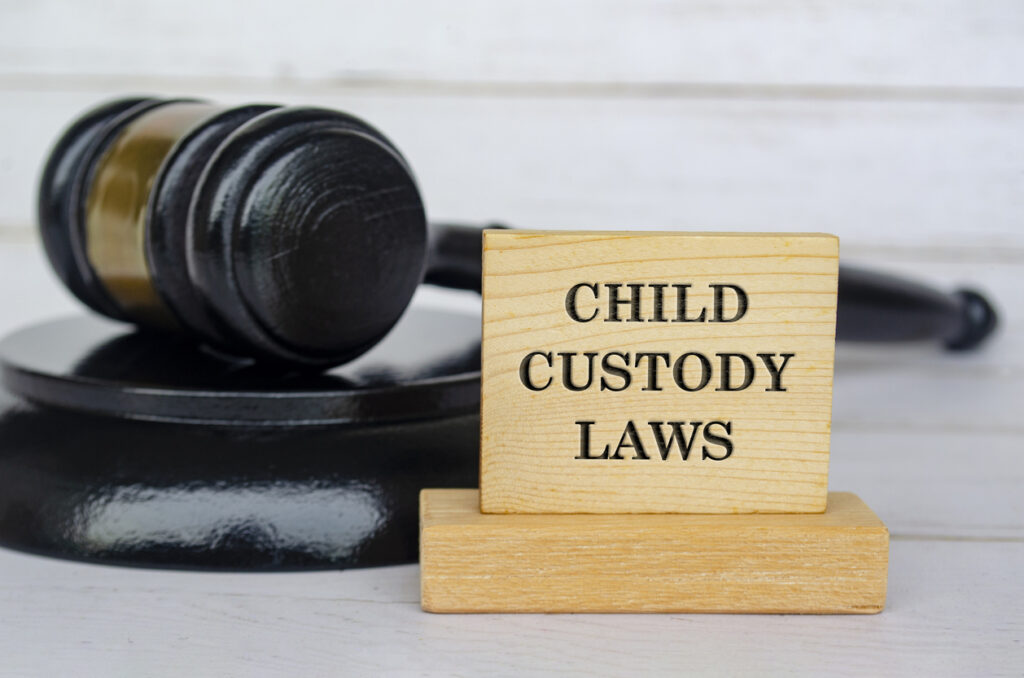- 2 Nov 2025

Navigating child custody disputes in California can be a challenging and emotional process for parents. Understanding the difference between legal and physical custody is crucial, as both aspects determine how decisions are made for a child and where the child lives. For parents in Orange County, having clear knowledge of these distinctions and the legal procedures surrounding them can make a significant difference in the outcomes of custody arrangements. Engaging child custody lawyers Orange County can help parents navigate the complexities of family law and ensure that custody arrangements serve the best interests of the child.
What Legal Custody Means in California
Legal custody refers to a parent’s right and responsibility to make major decisions about a child’s life. These decisions include education, healthcare, religious upbringing, and other aspects that significantly affect the child’s development and welfare. Legal custody does not automatically mean that a parent has the child living with them, but it does grant the authority to participate in or make important decisions about the child.
Sole vs. Joint Legal Custody
California law allows for two types of legal custody:
-
Sole Legal Custody: One parent has exclusive authority to make major decisions for the child. Sole legal custody is generally awarded in situations where one parent may not be fit to make decisions due to issues like substance abuse, domestic violence, or inability to cooperate with the other parent.
-
Joint Legal Custody: Both parents share decision-making responsibilities for major aspects of the child’s life. Joint legal custody is common in California, as courts encourage both parents to be involved in the child’s upbringing whenever possible. It does not require equal parenting time, but both parents must collaborate and communicate regarding major decisions.
The court’s primary consideration in awarding legal custody is the best interest of the child. Judges evaluate whether both parents can reasonably cooperate and make decisions jointly. A parent’s history of involvement in the child’s life and their ability to provide a stable environment can heavily influence the determination.

Understanding Physical Custody
Physical custody determines where a child lives and how much time they spend with each parent. Physical custody arrangements can be structured in several ways, depending on the child’s needs and the parents’ ability to provide a stable environment.
Types of Physical Custody
-
Sole Physical Custody: The child lives primarily with one parent, while the other parent may have visitation rights or scheduled parenting time. Sole physical custody is typically granted when one parent is unable to provide a stable home or when there is a history of abuse or neglect.
-
Joint Physical Custody: The child spends substantial amounts of time living with both parents. Joint physical custody does not always mean equal time, but it ensures that the child maintains meaningful relationships with both parents. Factors like the child’s age, school schedule, and the parents’ proximity are considered when arranging joint physical custody.
California courts focus on ensuring the child’s stability and continuity in daily routines when making physical custody decisions. Courts also consider each parent’s ability to meet the child’s emotional, educational, and physical needs.
Key Differences Between Legal and Physical Custody
Although legal and physical custody both involve parental rights, they address different aspects of parenting:
-
Decision-Making vs. Living Arrangements: Legal custody grants authority over major life decisions, while physical custody defines where the child resides and how daily care is shared.
-
Possibility of Separation: A parent can have sole legal custody while sharing physical custody with the other parent, or vice versa. For example, one parent may have sole legal custody to make educational decisions while the child splits time evenly between both parents’ homes.
-
Impact on Parenting Time: Physical custody primarily affects the child’s schedule and time with each parent, whereas legal custody focuses on long-term decisions.
Understanding the distinction between legal and physical custody is essential to prevent misunderstandings and conflicts during the custody process. Parents who confuse the two may make decisions or assumptions that are legally incorrect and could affect their case outcomes.
Factors Courts Consider in Custody Decisions
California courts prioritize the best interests of the child when determining custody arrangements. Several factors influence custody decisions:
-
Child’s Health, Safety, and Welfare: Courts evaluate the child’s physical and emotional needs, including any history of abuse, neglect, or exposure to unsafe environments.
-
Parental Ability to Co-Parent: The court examines whether parents can effectively communicate and collaborate on decisions affecting the child.
-
Parental History and Involvement: A parent’s history of caregiving, involvement in education, and participation in daily routines are considered.
-
History of Domestic Violence or Substance Abuse: Evidence of abuse or substance use can weigh heavily against a parent seeking custody.
-
Child’s Preference: Depending on age and maturity, the court may consider the child’s wishes. Typically, children 14 or older are allowed to express their custody preference, though younger children’s preferences may also be considered in context.
-
Stability and Continuity: Courts favor arrangements that minimize disruptions in the child’s schooling, friendships, and social life.
These factors ensure that custody arrangements support the child’s overall well-being and development, rather than prioritizing parental convenience.
Custody Evaluation Process in Orange County
In some cases, the court may order a custody evaluation to help determine the most suitable arrangements for the child. Custody evaluations are conducted by trained professionals who assess the parents’ abilities, the child’s needs, and the family dynamics. Evaluators may observe parenting interactions, interview family members, and review documentation about the child’s history and routines. Their recommendations are submitted to the court, although the judge makes the final custody determination.
Modifying Custody Orders
Custody arrangements can change over time due to significant changes in circumstances. Parents can petition the court to modify legal or physical custody if it serves the child’s best interests. Common reasons for modifications include:
-
Changes in a parent’s living situation or work schedule
-
Relocation of a parent
-
Changes in the child’s educational or medical needs
-
Evidence of neglect, abuse, or unsafe environments
To modify custody, parents must demonstrate that the circumstances have materially changed since the original order and that the modification would benefit the child.
Parenting Plans and Visitation Agreements
California encourages parents to develop detailed parenting plans outlining both legal and physical custody arrangements. A comprehensive parenting plan includes:
-
Schedules for weekdays, weekends, and holidays
-
Decision-making responsibilities for health, education, and extracurricular activities
-
Guidelines for communication between parents
-
Conflict resolution strategies
Well-drafted parenting plans reduce misunderstandings and provide a clear framework for managing custody and visitation. They also serve as evidence in court if disputes arise.
Role of Child Custody Lawyers Orange County
Engaging child custody lawyers Orange County helps parents navigate the legal complexities of custody disputes. Legal guidance is essential for:
-
Understanding parental rights and responsibilities under California law
-
Preparing and filing custody petitions or responses
-
Negotiating custody arrangements that protect the child’s best interests
-
Representing parents during court hearings and mediation sessions
-
Ensuring compliance with court orders and addressing violations
Parents seeking legal support can reference resources like Irvine Child Custody and Visitation Lawyer for tailored assistance on custody matters in Orange County.
Mediation and Alternative Dispute Resolution
California encourages mediation and alternative dispute resolution (ADR) as alternatives to court battles. Mediation allows parents to collaborate on custody decisions with the guidance of a neutral mediator. Benefits of mediation include:
-
Reduced emotional conflict
-
More flexible and creative solutions
-
Preservation of parental relationships
-
Faster resolutions compared to court proceedings
Mediation is often mandatory in Orange County before custody hearings, particularly in cases involving joint legal or physical custody.
Legal References and Government Resources
For authoritative information on California custody laws, parents can consult the California Courts Self-Help Center at selfhelp.courts.ca.gov. This resource provides official guidance on filing custody petitions, understanding parental rights, and preparing for court proceedings.
Conclusion
Distinguishing between legal and physical custody is a foundational aspect of child custody cases in California. Child custody lawyers Orange County play a pivotal role in guiding parents through the intricacies of custody law, helping ensure arrangements serve the child’s best interests. By understanding the legal definitions, court factors, modification processes, and mediation options, parents can make informed decisions that protect their child’s welfare and maintain meaningful relationships with both parents.
Engaging legal guidance and consulting reputable resources helps parents navigate custody disputes with clarity, confidence, and compliance with California law. Awareness of the distinctions between legal and physical custody empowers parents to advocate effectively for their child and secure arrangements that prioritize stability, safety, and long-term well-being.
For official guidance on child custody laws in California, see the California Courts Self-Help Center.
Recent posts
- 17 Oct 2025
Categories
- Accident & Injury Law (54)
- AI (1)
- Copyright Law (1)
- Criminal & Civil Law (17)
- Disability Law (2)
- Driving Law (2)
- Employment Law (1)
- Estate Planning (2)
- Family & Relationship Law (29)
- Food and Drink (2)
- Gas Exposure (1)
- Health (1)
- Immigration Law (2)
- Injury Claim (1)
- Insurance Law (7)
- Legal (40)
- Lemon Law (4)
- Mediation (3)
- Medical Malpractice (1)
- Property & Business Law (9)
- Severance Agreement (1)
- Travel and Leisure (1)
- Uncategorized (12)
- Worker Compensation (2)



